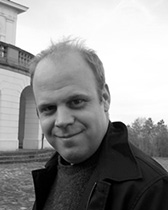Mark Hauser

Mark is an historical archaeologist who specializes in materiality, slavery and inequality. These key themes intersect in the seventeenth, eighteenth and nineteenth centuries Atlantic and Indian Oceans and form a foundation on his research on the African Diaspora and Colonial Contexts. As an archaeologist who studies how people adapt to landscapes of inequality and contribute to those landscapes in material ways he employs ethnohistorical, archaeological, and archaeometric approaches. His current fieldwork is based in the Eastern Caribbean and has focused on two communities in Dominica- Portsmouth and Soufriere. He also has research interests in 18th century Southern India and 19th century North America.
He completed his PhD at Syracuse University in 2001. Research conducted for this dissertation formed the nucleus of his book An Archaeology of Black Markets. In this book I explore the ways in which everyday internal and informal trade circumvented plantation boundaries and show how the economic activities of free and enslaved peoples shaped everyday life and the material world. It was the first systematic study of pottery made and used by slaves to use compositional analysis to understand both production and distribution networks of slaves.
His second book, based on research in Dominica, is tentatively entitled, Slavery and the Margins of Empire. This book is based on five years of archaeological and historical research conducted with the aid of the National Science Foundation and the Wenner-Gren Foundation. It compares the community histories and social lives of enslaved laborers on two eighteenth century sugar plantations in Dominica. I make the simple point that lives of empire's most marginal subjects could not be contained by the boundaries and identities under which they were categorized.
